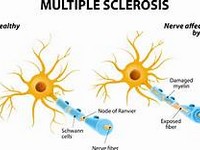
HAY FEVER
FOODS THAT HARM
FOODS THAT HEAL
WHO’S AFFECTED
Hay fever is a seasonal allergy characterized by sneezing, tearing eyes, and itchiness triggered by the inhalation of pollen or, less commonly, molds
Medically known as seasonal or allergic rhinitis, the term hay fever is a misnomer
Although symptoms may occur during the haying season, hay itself is not the culprit nor is there a fever
Although foods aren’t ordinarily associated with hay fever, people with certain types of seasonal Allergies may experience symptoms after eating particular foods
For example, plants in the sunflower family have antigens that cross-react with members of the ragweed family
Thus, a person whose hay fever symptoms are triggered by ragweed may react to eating any herbs and vegetables in the sunflower family
Similarly, people sensitive to mold spores may have an issue eating foods and beverages that harbor molds
Nutrition Connection
There is no special diet to alleviate hay fever symptoms, aside from avoiding foods that may trigger flare-upsAvoid foods in the sunflower plant family
If ragweed triggers hay fever flare-ups for you, avoid foods in this family
They include artichokes, chamomile tea, chicory, dandelions, endives, escarole, Jerusalem artichokes, salsify, safflower (found in vegetable oils and margarines), sunflower seeds and oil, tansy (used in some herbal medicines and folk remedies), and tarragon
Avoid fermented foods if you’re allergic to mold
These include alcoholic beverages, especially beer, wine, and other drinks made by fermentation; breads made with lots of yeast or the sourdough varieties; cheeses, especially blue cheese; dried fruits, including raisins and others that are allowed to dry outdoors; mushrooms of all kinds; processed meats and fish, including hot dogs, sausages, and smoked fish; sauerkraut and other fermented or pickled foods, including soy sauce; and vinegar and vinegary products, such as salad dressings, mayonnaise, ketchup, and pickles
Watch out for honey
Contaminants or pollens in some foods can also trigger the onset of hay fever symptoms
This is especially true of honey, which may harbor bits of pollen, and bee pollen capsules, a food supplement and natural remedy
Eat more omega-3s
Some reports suggest that eating fatty fish and other foods that are high in omega-3 fatty acids such as salmon, herring, and flaxseeds
Beyond the Diet
Take over-the-counter (OTC) allergy medicationsDrugs such as Benadryl, Claritin, and Zyrtec can provide considerable relief from mild to moderate hay fever symptoms
Try a nasal rinse
Rinsing your nasal passageways with a water and salt solution helps to relieve nasal congestion and keep the pathway clear by flushing out mucus and allergens from your nose and sinuses
A neti pot or a squeeze bottle can be found at your local drugstore
40% of all children in the United States suffer from hay fever
Talk to your doctor
For severe hay fever flare-ups, a doctor may prescribe nasal or oral corticosteroids, or leukotriene modifiers that block immune system chemicals that cause allergy symptoms
Importance of well balance diet




